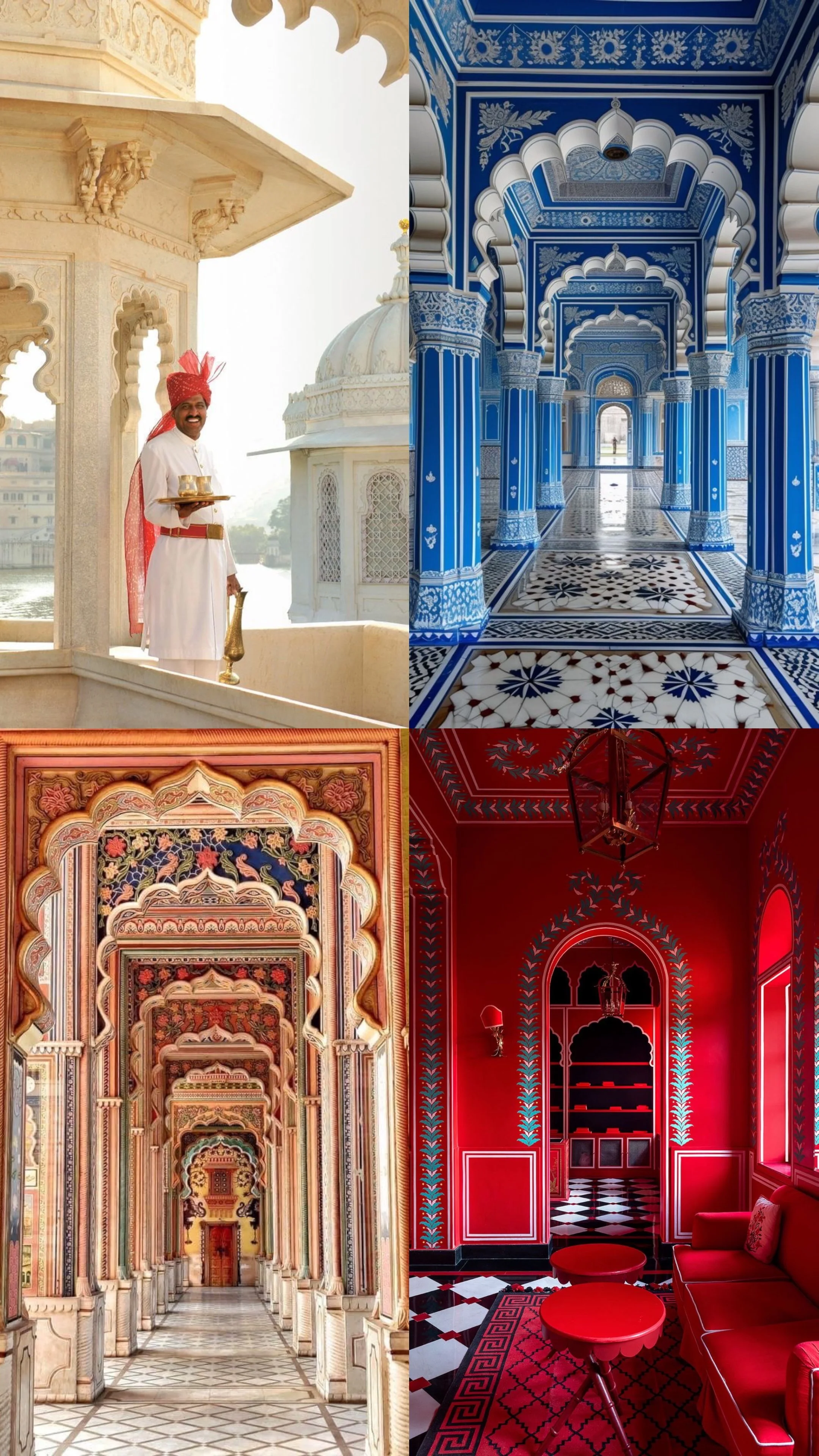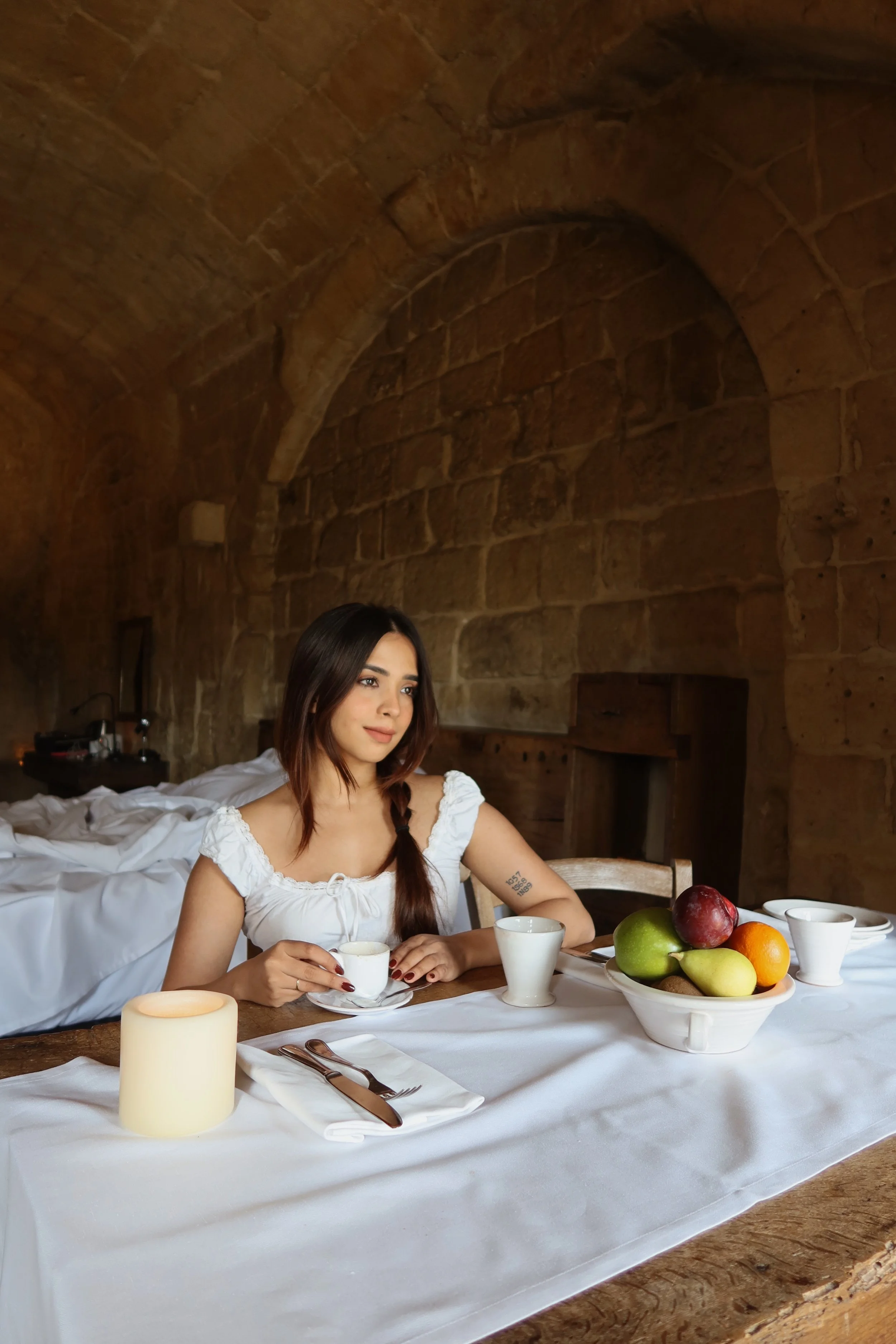HOSPITALITY AS THEATRE
Step into a boutique hotel in India and you’ll notice something: you’re not just checking in, you’re entering a performance. The scent of jasmine in the lobby, the play of shadows on a carved jali screen, the staff’s greeting that feels rehearsed yet deeply personal everything is choreographed. Hospitality here isn’t simply about service. It’s theatre.
Hotels as cultural stages
In the West, boutique hotels often pride themselves on minimal design and discreet luxury. In India, a hotel is more than a space to sleep it’s a cultural stage. A Rajasthani palace-turned-resort invites you into history, every mosaic tile and fresco retelling a royal past. A coastal Kerala retreat blends Ayurveda rituals with sleek modern amenities, turning wellness into an immersive narrative. Even urban boutique hotels in Delhi or Mumbai craft their own identities through lighting, scent, and soundscapes that feel closer to installations than interiors.
Every detail is part of the script. The guest isn’t just accommodated; they’re cast into a role protagonist in an unfolding story.
My perspective as a designer
Through my Early Check-Ins series, I’ve documented hotels as design stories, not just destinations. When I featured Sextantio in Matera, Italy, it struck me how its raw stone walls and minimalist preservation turned history into experience. And it reminded me of India’s approach to hospitality where narrative design is not an afterthought but the main event.
As a designer, I dream of creating boutique hotels not as glossy shells of luxury, but as immersive scripts. Spaces where a velvet armchair isn’t just a piece of furniture but a character; where textures, lighting, and even acoustics hold the weight of storytelling. For me, hospitality is design at its boldest because it asks you to choreograph emotion in real time.
Why this matters for the Indian market
Hospitality in India is more than an industry it’s a cultural laboratory. Boutique hotels experiment with blending heritage and modernity, local craft and global design language. These experiments shape consumer taste far beyond the property itself. Guests carry those aesthetics into their homes, their fashion, their purchasing decisions.
For global brands, this is the untapped lesson: in India, a hotel stay is often a person’s most intimate encounter with luxury design. They may not buy couture or a designer chair, but they will experience a palace suite or a curated wellness retreat. Hospitality becomes the entry point into aspiration.
The takeaway
In India, hospitality is never passive. It’s an active, living theatre where design, culture, and emotion perform in harmony. Every boutique hotel is a script, every guest an audience member, every experience a scene carefully staged.
And for designers like me, this stage is irresistible. Because when hospitality is treated as theatre, design stops being decoration it becomes storytelling.


